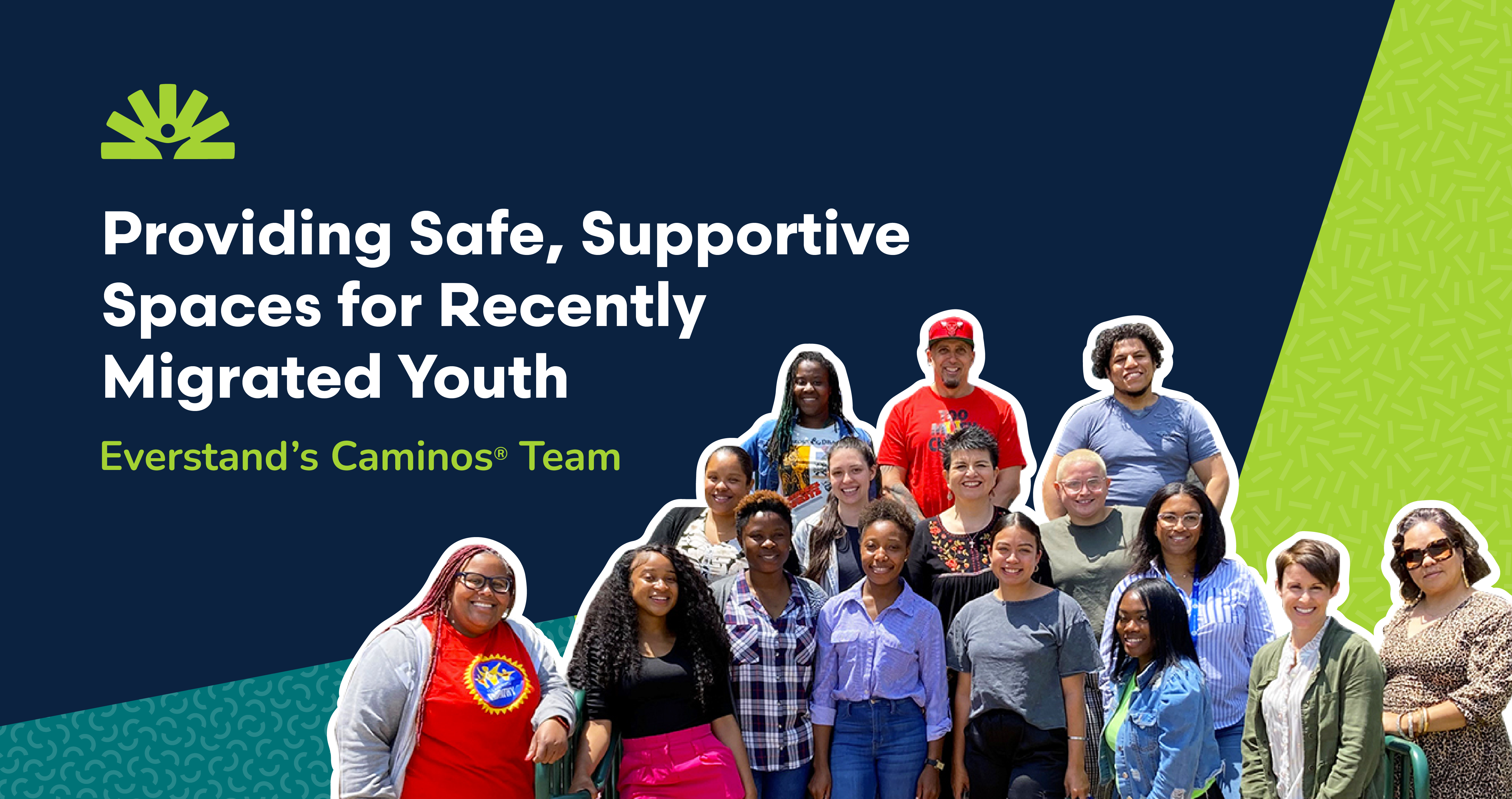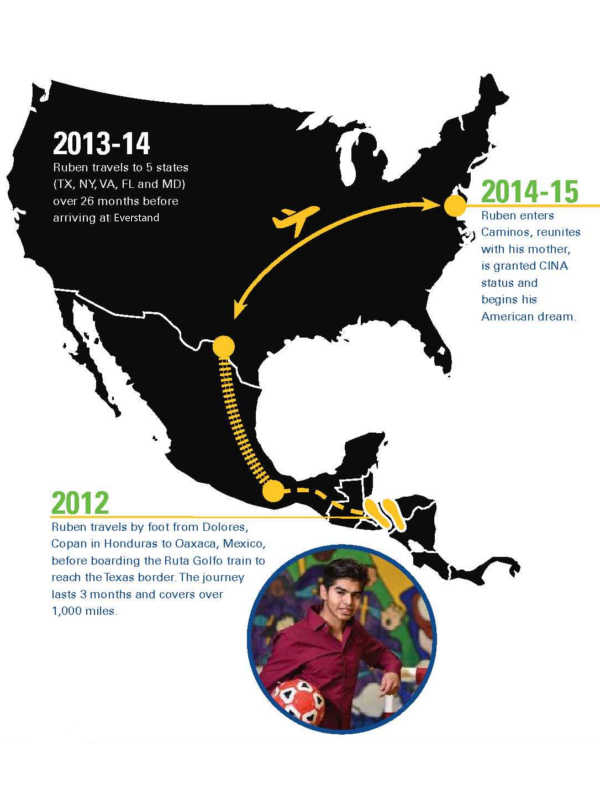The Caminos® program provides safe, secure placement options for children who have recently migrated to the United States and are seeking opportunities for reunification with family, as well as the chance to pursue their education and legal immigration cases.
- Short-Term Shelter Care
- Long-Term Foster Care
- Home Study/Post Release Services
According to the US Customs and Border Patrol, the agency encountered more than 152,000 unaccompanied minors at the southern US border in fiscal vear 2022 (FY2022), an all-time high. These children travel to the US, seeking a safer future, away from the violence, economic instability, environmental challenges, and other hardships they face in their home countries. Upon their arrival. there are few resources available that would give them the support and guidance they needed to reunite with family and integrate into American society. Everstand saw an opportunity to respond to the needs in the communities that we serve – places rich with diversity supported by immigrant and recently migrated populations- and the Caminos® Program was born.
“I am thrilled that as an organization, we stepped into that space to provide those services. And [we] did it not knowing how much of a need would come over the decade. We have now been serving the population: there was a tremendous need in 2014 and that need has only multiplied over the past 9 or 10 years” said Kelly Berger the Executive Director of Caminos® Programs.
Unfortunately, the need for such a program continues to grow as children flee their countries, driven by fear and the inability to feel safe.
The Caminos® Program provides short-term shelter care, long-term foster care, and home study/post-release services, designed to facilitate safe, secure placement options for children who have recently migrated to the United States and are seeking opportunities for reunification with family, as well as the chance to pursue their education and legal immigration cases. One of the most important aspects of the program is consistency and the relationship and trust that Caminos® Program staff can develop with the children in the program’s care.
Beyond providing these children with a place to live, the Caminos® Program is designed to ensure that recently migrated youth can acclimate to the cultural differences of the United States. “I think the greatest need is really acclimating them into society in the United States. I think many times, cultural differences would entail language barriers, how we celebrate holidays, our verbal and nonverbal gestures, and communication skills. I think, while respecting where these youth come from it’s also very important to teach them what could be respectful or disrespectful in the United States, said Jordan Jones, Program Director for Caminos West (Pennsylvania and West Virginia).
As Jordan recounted, much of the program staff are either immigrants or first-generation Americans themselves, so they are all extremely committed to the mission. As a child, Yefri Moya Gamez, a Case Aide on the Case Management team for the Everstand Baltimore Shelter program, immigrated to the US alone. “When I first applied for this [role with Everstand], I had already been through what the kids are going through right now. So, I’m driven just to try to help and share my experience with the youth. I explain to them if they stay focused in school and you learn English, they will do something here and have more opportunities here than back in our countries. So that motivated me to work here” explained Yefri.
With everything that the Caminos® Program does, it is designed to ensure that these children do not feel alone “It’s a care plan to help them. It’s not like we’re just getting them in and we’re just reuniting them but they have a plan, not just for reunification, but we’re setting them up for success – whether it is with the sponsor, making sure that the home is safe, making sure that the home is appropriate, or making sure that they have access to transportation and school. We’re not just shell-shocking them but taking them along the journey. They’re never blindsided; we don’t keep anything from them, but we very therapeuticallv aproach them in their situation.” said Sharnett Kelly, Program Director, Caminos® (Maryland).
The Caminos® Program also offers unique services to the children it serves “We also have two therapists in-house, which is my first experience working in a program where we actually provide [therapy] to our clients in the community, which is amazing. These kids get therapy once a week-in their house or at Starbucks or on a basketball court – just to process the trauma and the violence that made them leave their countries. It’s called peri-migration trauma.” explained Michael Lynch, the Assistant Program Director for Caminos® Home Study/Post-Release Services.
Ultimately, the Caminos® Program is not just about providing recently migrated youth with a place to stay but placing them in a supportive, compassionate environment that can enable them to thrive despite the trauma and hardships they have faced. Everstand scales this work through the Caminos Nacional program, which utilizes the skills developed by Everstand in delivering the program and extends its reach by providing guidance, consultation, and grant management to accredited partner organizations so that they may also offer the Caminos service to these at-risk children.
“I think that a huge goal, for me, would be to establish ourselves as a stronger federal partner outside of just the Subgrantee relationship. I think we have the capacity to provide technical assistance at a national level on standards for training in this type of programming, especially in some of the areas that we already operate in, and balancing state licensing regulations. So, I think that there’s an opportunity to create an Everstand Caminos® online resource center or technical assistance platform that could be branded for Caminos® and used outside of our network to further increase our impact” concluded Emily Claure, the Program Director for Caminos® Nacional.
Read more from Caminos® Program: Providing Safe, Supportive Spaces for Recently Migrated Youth

